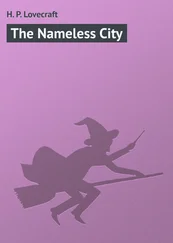Maurus Jokai - The Nameless Castle
Здесь есть возможность читать онлайн «Maurus Jokai - The Nameless Castle» весь текст электронной книги совершенно бесплатно (целиком полную версию без сокращений). В некоторых случаях можно слушать аудио, скачать через торрент в формате fb2 и присутствует краткое содержание. Город: New York, Год выпуска: 1898, Издательство: Doubleday, Page & Company, Жанр: Историческая проза, на английском языке. Описание произведения, (предисловие) а так же отзывы посетителей доступны на портале библиотеки ЛибКат.
- Название:The Nameless Castle
- Автор:
- Издательство:Doubleday, Page & Company
- Жанр:
- Год:1898
- Город:New York
- ISBN:нет данных
- Рейтинг книги:4 / 5. Голосов: 1
-
Избранное:Добавить в избранное
- Отзывы:
-
Ваша оценка:
- 80
- 1
- 2
- 3
- 4
- 5
The Nameless Castle: краткое содержание, описание и аннотация
Предлагаем к чтению аннотацию, описание, краткое содержание или предисловие (зависит от того, что написал сам автор книги «The Nameless Castle»). Если вы не нашли необходимую информацию о книге — напишите в комментариях, мы постараемся отыскать её.
The Nameless Castle — читать онлайн бесплатно полную книгу (весь текст) целиком
Ниже представлен текст книги, разбитый по страницам. Система сохранения места последней прочитанной страницы, позволяет с удобством читать онлайн бесплатно книгу «The Nameless Castle», без необходимости каждый раз заново искать на чём Вы остановились. Поставьте закладку, и сможете в любой момент перейти на страницу, на которой закончили чтение.
Интервал:
Закладка:
Katharina’s nerveless hands dropped to her lap. This sharp rebuke from her only child was deserved.
Then she sprang suddenly toward her visitor, grasped his arm, and cried:
“Tell me—tell me about my daughter, my little Amélie! How does she look now? Is she much changed? Has she grown? Oh, M. Cambray! in pity tell me—tell me about her!”
“I have brought you a portrait of her as she looked when I saw her last.”
He drew from his pocket a small case, and, opening it, disclosed a pallid face with closed eyes. A wreath of myrtle encircled the head, which rested on the pillow of a coffin.
“She is dead!” screamed the horror-stricken mother, staring with wild eyes at the sorrowful picture.
“Yes, madame, she is dead,” assented the marquis. “This portrait is sent by your daughter as a remembrance to the mother who exposed her on the streets, one stormy winter night, in order that she might spy upon another little child—a persecuted and homeless little child.”
The baroness cowered beneath the merciless words as beneath a stinging lash: but the man knew no pity; he would not spare the heartbroken woman.
“And now, madame,” he continued in a sharp tone, “you can go back to your home and take possession of your reward. You have worked hard to earn the blood-money.”
Here the baroness sat suddenly upright, tore from her bosom a small gold note-case, in which was the order for the five millions of francs. She opened the case, took out the order, and tore it into tiny bits. Then she flung them from her, crying savagely:
“Curse him who brought me to this! God’s curse be upon him who brought this on me!”
“Madame,” calmly interposed the marquis, “you have not yet completed the task you were set to do.”
“No, no; I have not—I have not,” was the excited response, “and I never will. Come—come with me! The maid and what belongs to her are here—safe, unharmed. Take her—fly with her and hers whithersoever you choose to go; I shall not hinder you.”
“That I cannot do, madame. I am a stranger in a strange land. I know not who is my friend or who is my foe. You must save the maid. If atonement is possible for you, that is the way you may win it. You know best where the maid will be safe from her persecutors. Save her, and atone for your transgression against her. Ludwig Vavel gave you his love and, more than that, his respect. Would you retain both, or will you tear them to tatters, as you have the order for the five million francs? Will you let me advise you?” he asked, suddenly.
“Advise me, and I will follow it to the letter!”
“Then disguise yourself as a peasant, hide the steel casket in a hamper, and take it to Ludwig Vavel, wherever he may be.”
“And Marie?”
“You cannot with safety take her with you. The maid and the casket must not remain together. You must conceal Marie somewhere until you return from the camp.”
“Will you not stay here and keep watch over her until I return?”
“I thank you, madame, for your hospitality, but I must not accept it. I come direct from the influenza hospital. I feel that the disease has laid hold of me. I have comfortable quarters at the Nameless Castle, where my old friend Lisette will take care of me. Don’t let Marie come to see me; and if I should not recover from this illness, which I feel will be a severe one, let me be buried down yonder on the shore of the lake.”
When the Marquis d’Avoncourt left the pavilion he was shaking with a violent chill, and as he took his way with tottering steps toward the Nameless Castle, Katharina, broken-hearted and filled with anguish, wept out her heart in bitter tears.
CHAPTER II
Marie had finished practising her lesson, and hastened to join Katharina in the park. She found her in the pavilion, and was filled with alarm when she saw her “little mama” kneeling among the fragments of her fortune. Katharina’s tear-stained eyes, swollen face, and drawn lips betrayed how terribly she was suffering.
“My dearest little mama!” exclaimed Marie, hastening toward the kneeling woman, and trying to lift her from the floor, “what is the matter? What has happened?”
“Don’t touch me,” moaned the baroness. “Don’t come near me. I am a murderess. I murdered her who called me mother.”
She held the ivory locket toward Marie, and added: “See, this is what she was like when I deserted her—my little daughter Amélie!”
“Your daughter?” repeated Marie, wonderingly. “You have been married? Are you a widow?”
“I am.”
Katharina now held toward the young girl the portrait M. Cambray had given her. “And this,” she explained in a hollow tone, “is what she is like now—now, when I wanted her to come to me.”
“Good heaven!” ejaculated Marie, gazing in terror at the miniature, “she is dead?”
“Yes—murdered—as you, too, will be if you stay with me! You must fly—fly at once!”
“Katharina!” interposed the young girl, “why do you speak so?”
“I say that you must leave me. Go—go at once! Go down to the parsonage, and ask Herr Mercatoris to give you shelter. Tell him to clothe you in rags; and when you hear the tramp of horses, hide yourself, and don’t venture from your concealment until they are gone. I, too, am going away from here.”
“But why may not I come with you?” asked Marie, in a troubled tone.
“Where I go you cannot accompany me. I am going to steal through the lines of Ludwig’s camp.”
“You are going to Ludwig?” interrupted the young girl.
“Yes, to deliver into his hands the casket containing your belongings. After that I—I don’t know what will become of me.”
“Katharina! Don’t frighten me so! Do you imagine that Ludwig will cease to love you when he learns you are a widow, and that you had a daughter?”
“Oh, no; he will not hate me because I had a daughter,” returned Katharina, shaking her head sadly, “but because my wickedness destroyed her.”
“Don’t talk so, Katharina,” again expostulated Marie.
“Why, don’t you see that she is dead? Look at these closed eyes, the white face! Ask these closed lips to open and tell you that I did not murder her!”
“Katharina, this is not true! Your enemies have told you this to grieve you. Look at these two pictures! There is not the least resemblance between them. This pale one is not your daughter. He who told you so lied cruelly.”
Katharina sighed mournfully.
“He who told me so does not lie. It was your old friend Cambray.”
“Cambray?” echoed Marie, with mingled delight and astonishment. “Cambray is here? My deliverer, my second father! Where is he?”
“He is gone. He accomplished that for which he came,—to crush me to the earth, and to serve you,—and has gone away again.”
“Gone away?” repeated Marie, incredulously. “Gone away? Impossible! Cambray would not go away without seeing me! Which way did he go? I will run after him and overtake him.”
“No; stay where you are!” commanded Katharina, seizing her arm. “You must not follow him.”
“Why not?”
“Listen, and I will tell you. Cambray brought these pictures and this letter from Paris. The letter was written by my daughter in the hospital, where she caught the dreadful disease which caused her death. She had been nursing the sick, like a heroine, and died like a saint. It is well with her now, for she is in heaven. If I weep, it is not for her, but for myself. The deadly disease Amélie died of has seized upon your friend Cambray; and the noble old man is unselfish even in dying. He does not want you to come near him, lest you, too, become affected by the pestilence. He is gone to the Nameless Castle, where Lisette will take care of him—”
Читать дальшеИнтервал:
Закладка:
Похожие книги на «The Nameless Castle»
Представляем Вашему вниманию похожие книги на «The Nameless Castle» списком для выбора. Мы отобрали схожую по названию и смыслу литературу в надежде предоставить читателям больше вариантов отыскать новые, интересные, ещё непрочитанные произведения.
Обсуждение, отзывы о книге «The Nameless Castle» и просто собственные мнения читателей. Оставьте ваши комментарии, напишите, что Вы думаете о произведении, его смысле или главных героях. Укажите что конкретно понравилось, а что нет, и почему Вы так считаете.












